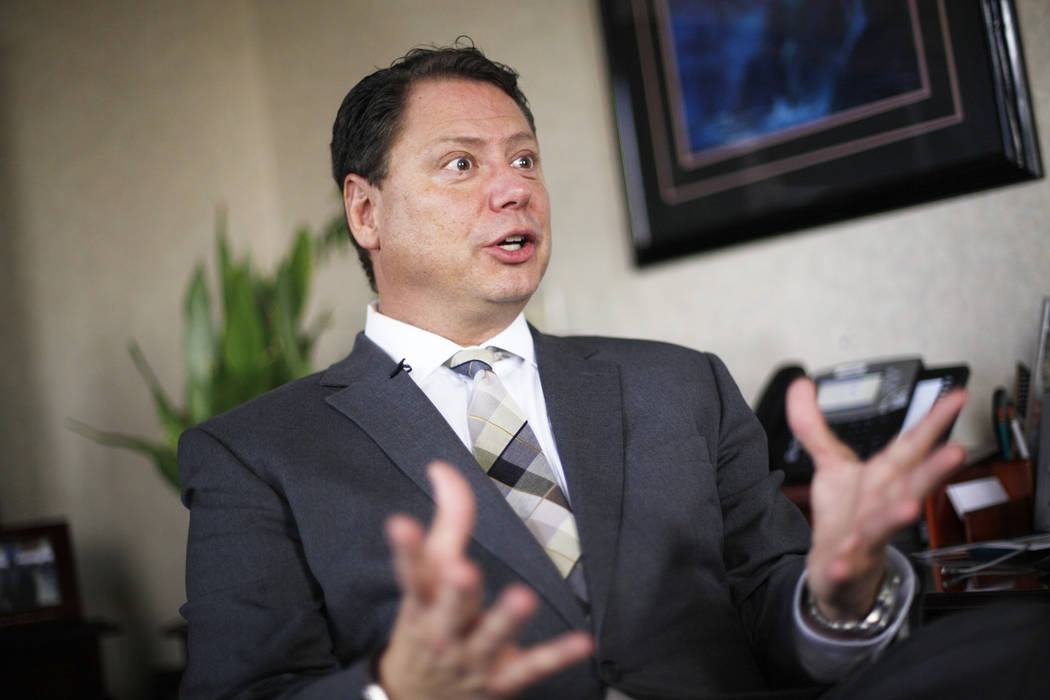Nevada schools say Medicaid cuts would hit their budgets, too
Medicaid cuts proposed in congressional legislation to replace the Affordable Care Act are sounding an alarm from school districts in Nevada and nationwide.
While the program is best known for providing health insurance for the poor, school districts around the country use Medicaid funding for an array of services for special education students — including occupational or physical therapy, speech therapy and services for the deaf and hard of hearing. Those services are required by federal law through students’ individual education plans.
The Clark County School District could face a multimillion dollar loss if proposed Medicaid cuts in the House or Senate health care bills go through. The district uses roughly $7 million in reimbursements for 18,468 low-income, special education students — reimbursed with 60 cents for every dollar spent.
Nevada school officials are urging the state’s senators to oppose any cuts in Medicaid.
“A reduction in Medicaid funding will have a severe impact on both the health and education of low-income students, particularly those with disabilities, and must be avoided in the Senate health care bill,” Clark County School District Pat Skorkowsky wrote in a letter to Sens. Dean Heller, R-Nev., and Catherine Cortez Masto, D-Nev., last week.
Without the Medicaid funds, the special education funding would come from the district’s general fund — reducing money available to serve the remainder of students, he said.
Superintendent Traci Davis of the Washoe County School District, which has received an average of $2.56 million in annual Medicaid reimbursements for the past five years, also sent a letter to Heller last week.
“Under the (bill)… the bulk of the costs for health care coverage would be shifted to our state even though health needs and costs of care for children will remain the same or increase,” Davis wrote in the June 23 letter.
“We will have to lay off school personnel like nurses, counselors and therapists since they will not be able to supplement their salaries with Medicaid or raise taxes to compensate for this funding shortfall,” Davis wrote, noting that the money funds 120 staff positions.
Both Nevada Gov. Brian Sandoval and Heller came out against the Senate’s draft version of the health care overhaul last week. At least five Republican senators — enough to prevent the bill’s passage — have expressed opposition to the draft.
Sandoval said at a press conference last week that he would not want to see any reduction in Medicaid, particularly when the state has made massive improvements in education.
“You’re talking to someone who just signed a budget that increases the weights for special education students,” he said. “That’s been a big priority for me and a big priority for K-12 education in the state.”
The House bill passed in May would cut Medicaid by $834 billion over 10 years. The Senate bill, similar to the House legislation, also would eliminate the Medicaid expansion offered by the Affordable Care Act by the end of 2023.
John Hill, executive director
“Our biggest fear is that because kids don’t vote, their voice doesn’t carry very far,” Hill said. “Who’s going to step up and speak for them when it does come time for cuts?”
Contact Amelia Pak-Harvey at apak-harvey@reviewjournal.com or 702-383-4630. Follow @AmeliaPakHarvey on Twitter. Review-Journal writers Colton Lochhead and Paul Harasim and The Associated Press contributed to this report.
Medicaid reimbursements, FY16
Clark County School District: $7,065,675
Washoe County School District: $3,975,619
Source: Clark and Washoe County school districts




























